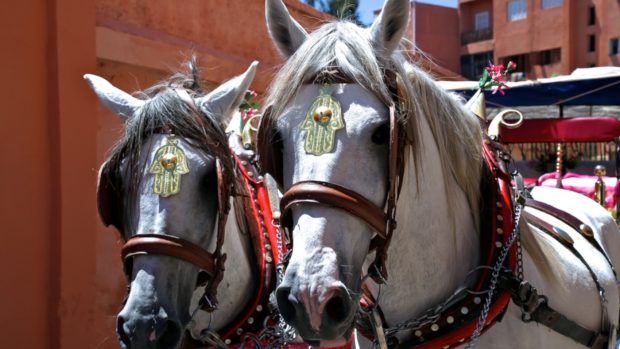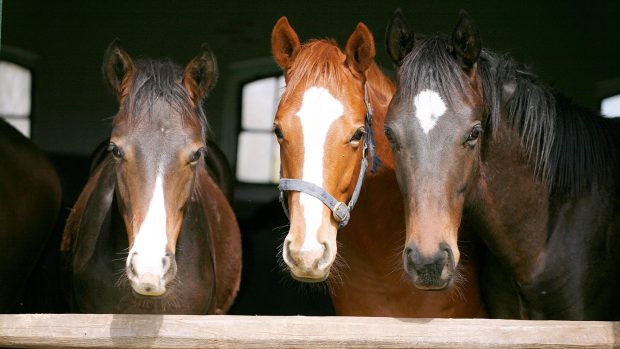There are more than two million working horses in Ethiopia. But with disease rife and basic equine understanding limited, H&H’s charity of the year, SPANA, faces a tough challenge to improve conditions. Sophia Heath investigates in Debre Zeit
While equine welfare in the UK is at the forefront of H&H readers’ minds, it is easy to forget the terrible suffering inflicted on horses across the globe. The conditions faced by the 2.6million working horses in Ethiopia serve as a reminder of the need to improve equine wellbeing worldwide.
The Society for the Protection of Animals Abroad (SPANA) has been working in the country for more than a decade, but the state of many animals is poor. Wounds, malnourishment, mistreatment and disease are widespread.
“The cart horse owners rely on income from the horses, but the attention given to them is minimal,” explained Dr Nigatu Aklilu, director of SPANA Ethiopia.
“It is minimal from the owners themselves, and also the government. There is a lot of suffering and the horses receive very little support.”
As well as basic welfare issues, two diseases — African Horse Sickness (AHS) and Epizootic Lymphangitis (EZL) — also plague the country.
Tackling EZL
AHS is seasonal and tends to be most prevalent after the rainy season, but EZL is a constant issue for horse owners.
The highly contagious fungal disease, which infects the lymph nodes, is estimated to affect more than 300,000 horses in the country at any one time.
The disease is fatal if not treated in its early stages and SPANA is the only organisation to offer a major treatment programme in the country.
As well as tackling the disease, the SPANA team are also faced with the challenge of trying to educate owners about early detection and correct treatment.
One of the worst cases I came across during my time in Ethiopia was a horse called Keyo, whose owner had tried to cure the EZL lesions with battery acid. This treatment had caused the horse’s entire leg to become infected and turn green.
“I thought the acid would stop the disease spreading,” he said when questioned.
The SPANA vets sedated Keyo and worked to clear the infection as well as treating the EZL. If the owner follows the treatment prescribed then the horse should survive.
However, I also saw cases where the disease had gone beyond the treatable stage before the horse was brought to SPANA, at which point vets can only recommend euthanasia.
In its later stages, the disease can attack the respiratory system and many owners choose simply to abandon their horses on the roadside.
SPANA Ethiopia owns a vehicle, which it used specifically to put down and remove horses that have been left in this situation.
Changing attitudes
Traditional remedies are not the only example of a basic lack of equine understanding with which SPANA has to deal.
One horse that came to the mobile clinic in Adama was suffering from severe malnutrition. The owner explained that the horse had not been working, therefore he didn’t think it needed feeding. The owner’s other horse had already died due to starvation for the same reason.
This sort of ignorance regarding welfare is common across the country, and clearly visible in the condition of the horses.
As a result, a large part of SPANA’s work in Ethiopia is focused on education. The charity’s efforts
are split between community development projects for adults — such as farriery training and harness making — and a children’s programme.
In order to try to educate the next generation, the charity has set up after-school animal clubs in more than 50 locations. A new animal handling centre was also opened in Debre Zeit in September.
The centre — which has rabbits, guinea pigs, a horse and a donkey — will give thousands of children the opportunity to see and handle animals. Some of the children in the group that I met had never had direct contact with animals before.
“What we want is to create in them an understanding of animal welfare and empathy towards animals,” said Dr Nigatu.
“This is a big development with regards to animal welfare because the children are happy to interact with animals, and we want to create a positive attitude toward them.
“We don’t want a future without working equines, but we want the conditions to be improved.”
Although SPANA is working to educate Ethiopian owners to help themselves, their work relies on British owners supporting working equines worldwide.
➤ EZL can be treated for £20.
To donate to SPANA visit: www.spana.org/donate-now
Ref: H&H 18 December 2014





